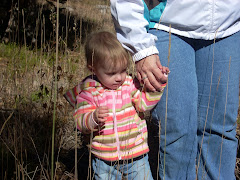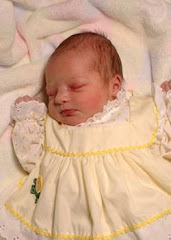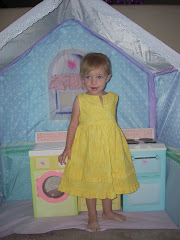The State of Arizona has cut AzEIP funding. Emily will now only receive 1 hour of speech therapy a month!! This is the letter my speech therapist sent us. We have not been contacted by our support coordinator yet.
February 26, 2009
Dear Sub-Contracted Therapy Provider,
As you are aware, the Arizona Early Intervention Program has been significantly impacted by the budget cuts intended to offset the state’s deficit. Easter Seals Blake Foundation was given a new, significantly decreased, budget to work with while at the same time continuing to support the same number of children within the program. In order to continue to support all of our families, we have had to look at making reductions in all aspects of our program and agency, as well as do our best to align our program and current systems with available resources.
In order to ensure that all families funded under the AzEIP only contract continue to receive support from the expertise of our team members within this new budget, we have had to institute the following changes to our on-going therapy frequencies:
Each family will receive one monthly home visit per service identified on their child’s Individualized Family Service Plan (IFSP).
Each monthly visit should be approximately one hour and cannot exceed two hours in length.
The above changes are effective as of March 1st, 2009 and will be continued through June 30th. Therapy frequencies will be revisited once our agency receives additional financial information in the new fiscal year. If the team decides that the family and child would benefit from more frequent therapy visits, then we encourage the team to go through the child’s health plan. AzEIP is currently working to develop a basic overview for billing AHCCCS and a protocol for accessing EPSDT services through AHCCCS. Once we receive this procedure, it will be forwarded to you immediately. Our service coordinators will begin to contact families today in order to discuss these changes.
There currently are no changes to the Initial Planning Process and our Developmental Specialists will continue to refer children to you for an evaluation to assist in eligibility determination.
Much consideration and planning has gone into making these very difficult decisions in order to minimize the impact that these devastating cuts will have on the families we support, our staff, and our subcontractors. We understand how these changes may affect you and will do our best to support you during this time. Your commitment to each other, to the program, and to the children and families that we serve is appreciated. Please know that our commitment to you is just as strong.
Our management team will continue to evaluate our current systems and resources in order to prepare financially for the next fiscal year and would appreciate any input from you. Please be reminded that the above listed changes only pertain to AzEIP only funded children (not DDD children). If you have any questions, please do not hesitate to contact me at (000) 000-0000 x 0000 or any of our early intervention supervisors.
Sincerely,
M W
Matt & I are going to do what ever it takes to make sure Emily gets at least weekly speech therapy. It cost $85 a session! Right now Emily is getting 4 sessions a month but she really needs to be getting 3 sessions a week (12 sessions a month). As of right now our insurance wont cover speech therapy. Once we have Lowe's insurance we will have 5 sessions a month (hopefully...thats the max they offer). So right now I am looking at what we can cut from our budget right now so she can have what she needs! As of right now she will still be starting school on March 30th. I am so thankful that she is going to be 3! I feel for the families with children who are younger & in need of these services! I don't think our government has thought about what the effects of cut these services will be! Unfortunately it is usually the children & people in need that get cuts first!
Alicia












